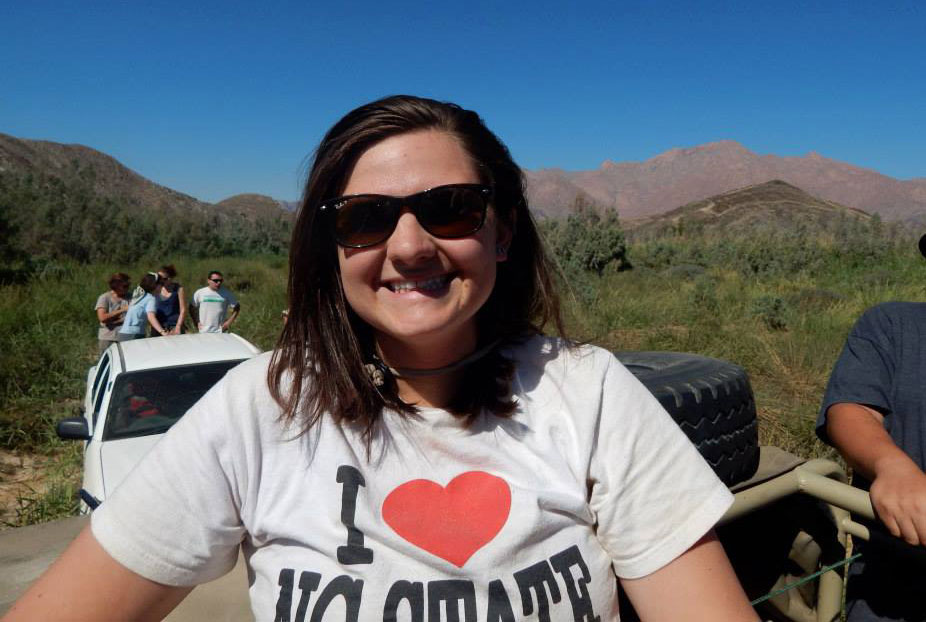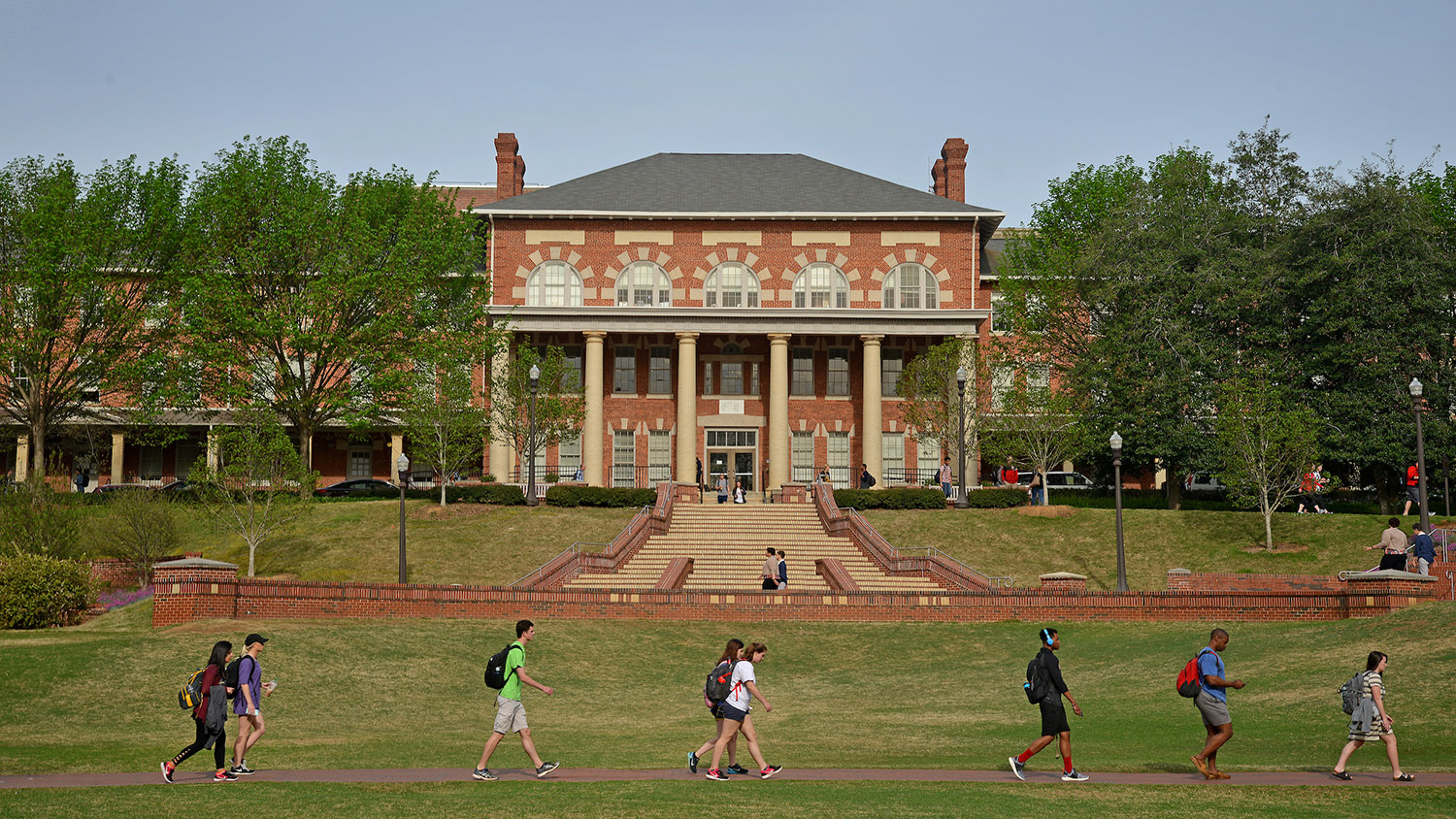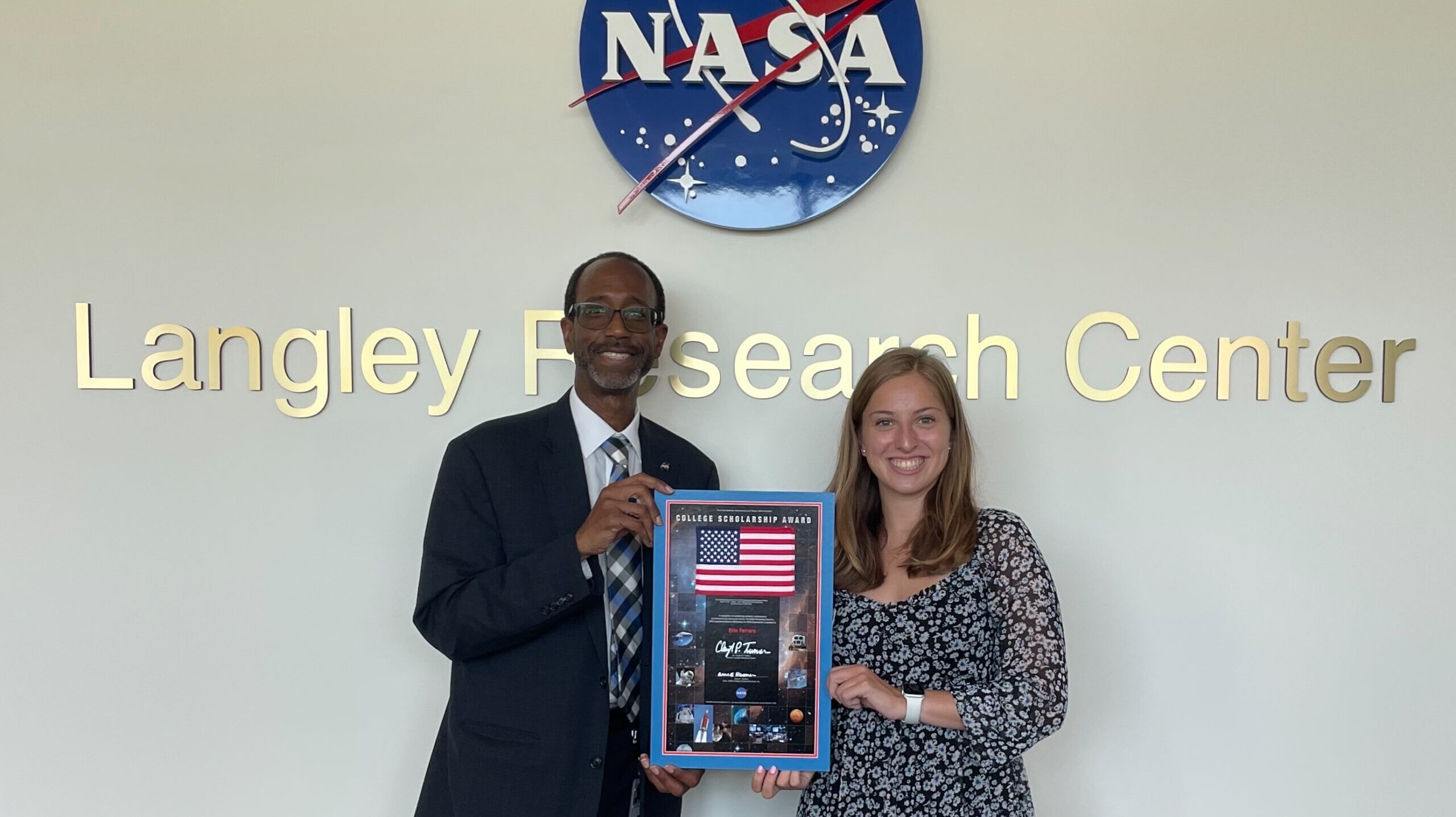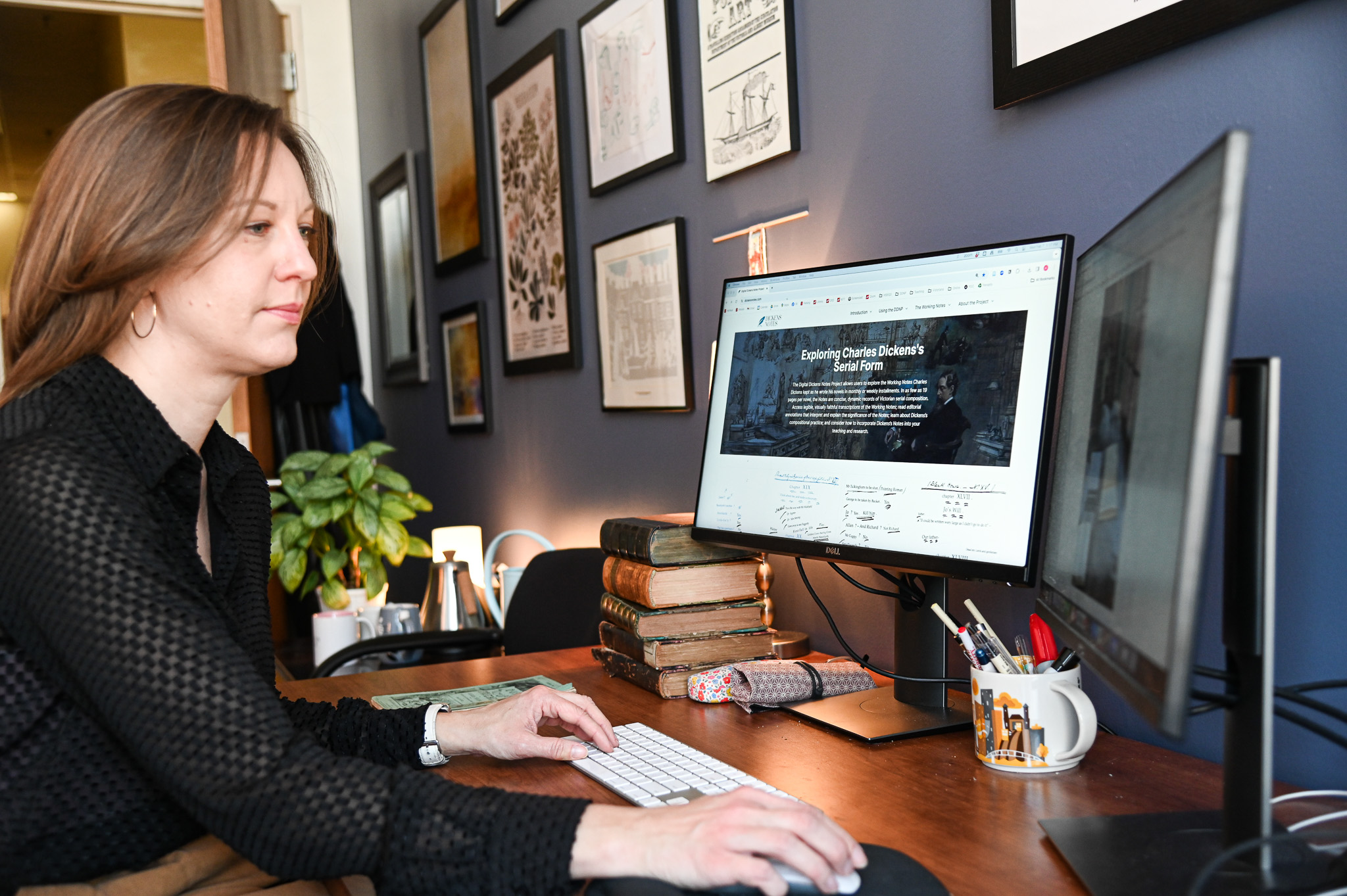Study Abroad Combines Passion for Writing and the Environment


Studying abroad allows students to apply their learning to the real world, as they gain first-hand experience with other cultures, languages, traditions and people. It also teaches students a lot about themselves as they navigate new, unfamiliar environments. This Q&A highlights how one CHASS student incorporated study abroad into her undergraduate career.
Rebecca Nagy is a senior majoring in English (Language, Writing and Rhetoric) with a minor in Environmental Sciences. In Summer 2014, she traveled to Namibia to explore her interests in both writing and conservation.
What sparked your interest in study abroad?
I was taking Energy and the Environment — the last class to complete my environmental science minor. The TA for that class introduced herself with a photo she took on a study abroad trip to Namibia. After class, I talked to her about her experience in the program. It sounded like a great opportunity to travel somewhere I have always wanted to go.
Briefly describe your experience.
This past summer, I spent three weeks in Namibia as part of the African Ecology and Conservation program led by Werner Dorgeloh from the College of Natural Resources. We took part in lectures led by Dr. Dorgeloh and local biologists, and conducted field work every day, which could range from population surveys of springbok to biomass calculations of plant species. We stayed in three main locations: Naankuse (a wildlife reserve), Gobabeb (a research facility in the Namib desert), and Etosha (a national park). We camped in tents most of the time, although we got a special upgrade in Naankuse, where we stayed in the same luxury lodges where Brad Pitt and Angelina Jolie vacation every Christmas. We also spent time in Swakopmund, a seaside town, and Windhoek, the capital of Namibia. In those two locations, we stayed in backpackers lodges.
How do you feel the study abroad related to your major(s), minor(s), career goals, and personal interests?
I am interested in science writing and ecojournalism, and would love to make a career out of traveling to places like Namibia to write about environmental and conservation issues. I thought this trip would be a great way to supplement my minor and my major. I wrote in my journal every day and wrote in a blog I kept — as best I could with the very limited wi-fi that we had. In order to write about the world, you need to experience it and I am so grateful I got to experience Namibia.

What are some things you learned?
I came back with much more genuine respect for nature. In seeing cheetahs, elephants, lions, zebras and rhinos up close and personal — not in a zoo or behind bars but in their natural environment— you really appreciate their raw power and how amazing these creatures are. Being 10 feet away from a herd of wild desert elephants will probably go down as the greatest day of my life.
What were some of the challenges?
I did not realize how dependent I was on technology until we were in the middle of the desert with no wi-fi or any connection to the outside world. But as the trip went on, we found other ways to entertain ourselves. There were only 11 of us in the program, so we got to know each other really well and grew really close — especially once we were forced to “unplug.”
What were some of the rewards?
Going to Africa was always something I wanted to do but never thought would actually happen. In those three weeks, I was able to have so many once-in-a-lifetime experiences. I hiked to the top of the sand dunes in the oldest desert in the world. I sea kayaked with cape fur seals and dolphins. I went elephant tracking and sat 10 feet away from a herd of desert elephants. And I got to experience it all with 11 amazing members of the Wolfpack family.
Interview conducted by Dara Leeder.
- Categories:


